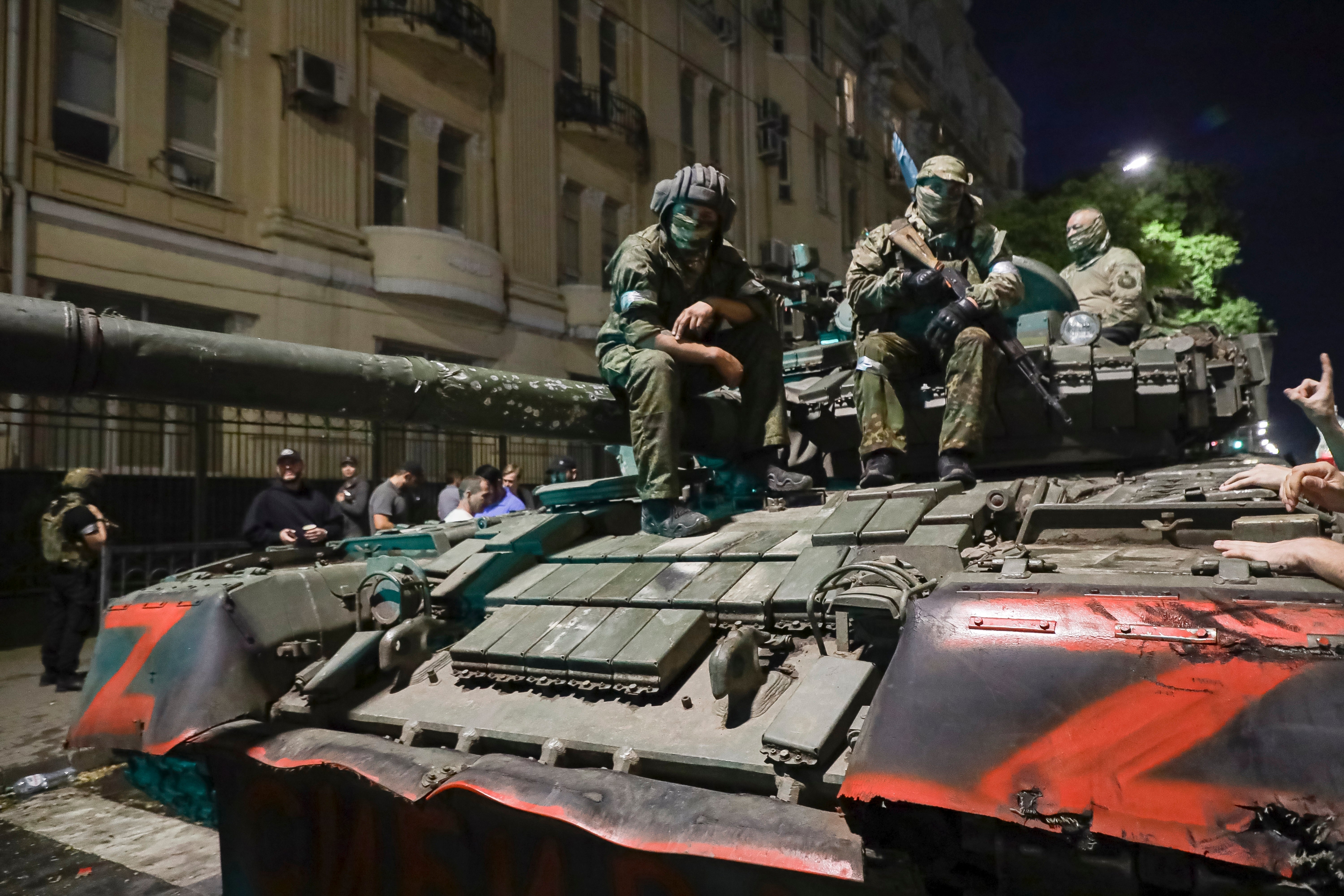Putin recruits former Wagner commander ‘Grey Hair’ Troshev to oversee Ukraine mercenaries
‘You yourself have been fighting in such a unit for more than a year’, Putin tells Troshev
Your support helps us to tell the story
From reproductive rights to climate change to Big Tech, The Independent is on the ground when the story is developing. Whether it's investigating the financials of Elon Musk's pro-Trump PAC or producing our latest documentary, 'The A Word', which shines a light on the American women fighting for reproductive rights, we know how important it is to parse out the facts from the messaging.
At such a critical moment in US history, we need reporters on the ground. Your donation allows us to keep sending journalists to speak to both sides of the story.
The Independent is trusted by Americans across the entire political spectrum. And unlike many other quality news outlets, we choose not to lock Americans out of our reporting and analysis with paywalls. We believe quality journalism should be available to everyone, paid for by those who can afford it.
Your support makes all the difference.President Vladimir Putin recruited a former aide of late Wagner chief Yevgeny Prigozhin to oversee mercenary fighter units in Ukraine.
The Russian president met Andrei Troshev, who is known by his nom de guerre "Sedoi" or "grey hair", along with deputy defence minister Yunus-Bek Yevkurov on Thursday night, the Kremlin said in a statement.
“At the last meeting, we talked about you overseeing the formation of volunteer units that can carry out various tasks, first and foremost, of course, in the zone of the special military operation,” Mr Putin was quoted as saying to Mr Troshev. Special military operation is what Russia calls its invasion of Ukraine.
"You yourself have been fighting in such a unit for more than a year," the president said.
"You know what it is, how it is done, you know about the issues that need to be resolved in advance so that the combat work goes in the best and most successful way."
The meeting appeared to be the Kremlin's attempt to show that Mr Putin had regained control over the mercenary group since Prigozhin's death in a plane crash in August following a failed mutiny against Moscow.
Prigozhin had claimed that the mutiny, which was aborted before reaching Moscow, was not aimed at toppling Mr Putin but at settling scores with defence minister Sergei Shoigu and chief of the general staff Valery Gerasimov.
The president in recent months ordered the Wagner mercenaries to sign an oath of allegiance to the Russian state – a step Prigozhin had opposed.
Mr Troshev “betrayed” Prigozhin's short-lived mutiny against Moscow after earning Mr Putin’s favour by transferring inside information to the Russian defence ministry, investigative outlet Gulagu.net claimed in July.

Mr Putin also underlined the integration of fighters from the mercenary group into Russia’s regular military, according to the Moscow Times. Mr Troshev and Mr Yevkurov have travelled to several countries in recent months where the mercenaries worked.
Mr Troshev was born in Leningrad – the Soviet-era name for Mr Putin's home town St Petersburg – and has earlier been pictured with the president.
He fought in Afghanistan during the Soviet Union's decade-long war. After the fall of the Soviet Union, he served in the North Caucasus with the Russian army and then in SOBR, a quick reaction special forces unit of the Russian interior ministry. He was a commander in the unit.
For his service in Afghanistan, Mr Troshev was awarded the military decoration Order of the Red Star twice. He was awarded Russia's highest medal – Hero of Russia – in 2016 for the storming of Palmyra in Syria against Islamic State militants.
Several hundred fighters of the Wagner group have returned to the battlefield in Ukraine to fight for Russia, Kyiv claimed.
“We have recorded the presence of a maximum of several hundred fighters of the former Wagner PMC (private military company),” spokesperson for the eastern military command Serhiy Cherevatyi said.
These Wagner fighters were scattered in different places and were not part of a single unit, and had no significant impact, he said.
“They do not constitute any integral, systematic, organised force,” the spokesperson said. “As they say – game over. These are pathetic remnants, nothing good awaits them here.”




Join our commenting forum
Join thought-provoking conversations, follow other Independent readers and see their replies
Comments